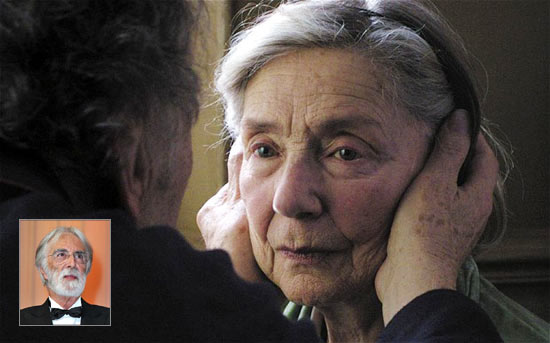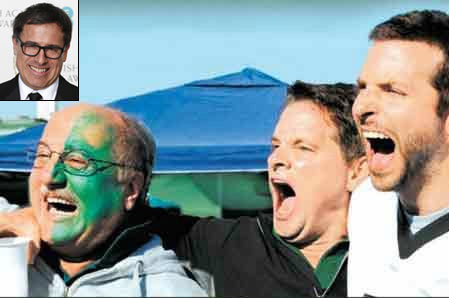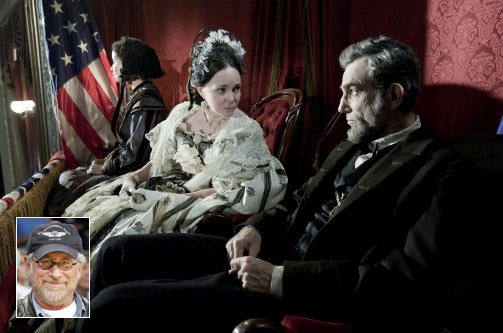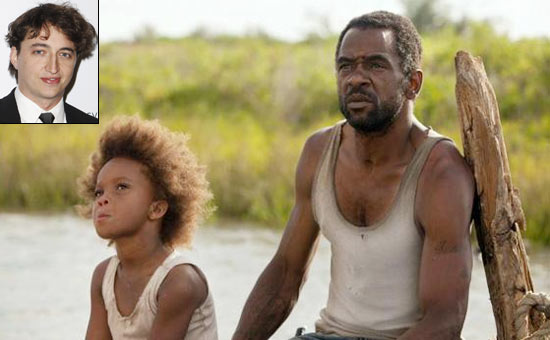Raja Sen in Mumbai
With a little over 10 days to go for this year's Oscar awards, we take a look at those in contention for the Best Director trophy, even though this year is marked by those passed over for the prize.
Wes Anderson, Quentin Tarantino, Ben Affleck, Kathryn Bigelow: Not nominated.
With Moonrise Kingdom, Django Unchained, Argo and Zero Dark Thirty respectively, they were the four American filmmakers who pushed cinematic boundaries farthest -- blurring lines between genres, between facts and fiction, between history and hysteria -- and were all ignored.
The cold shoulder given to Affleck, especially, has generated a massive wave of buzz for Argo, with every award ceremony leading up to the Oscars heaping gold on Ben. Perhaps merely because the Oscars can't.
Will the Academy make up for it by giving Affleck's film Best Picture? Well, there Argo-od chances.
Here, meanwhile, are the five non-Bens vying for the prize:
Michael Haneke (Amour)
Like a swift, violent knife-wound, Amour is the kind of film that plunges into you and bleeds you out gradually; it starts out nearly painless but then festers and aches lethally.
By the time you notice how much it hurts, you're crushed already. Michael Haneke is a master, and Amour is just the latest shard of evidence.
That said, Amour -- a meditative tragedy about a healthy old woman and her excruciating, gradual degeneration towards death, and her husband's painfully patient ways to cope with the same -- is almost gratuitously sad.
It's beautiful and bleak and shows off Haneke's craft, centering claustrophically around two stunning actors, but if actors can be said to have one-note performances, so can directors and writers: this is Haneke's one-note film.
Ang Lee, Life Of Pi
Image: A scene from Life Of Pi. Inset: Ang LeePhotographs: Ange Lee picture: Pradeep Bandekar
I rather loved the early bits of the novel -- the bits about spirituality and family, bits that the rest of the book made look like an extended prologue -- but felt all that stuff about tigers and lifeboats, not to mention the gimmicky ending, was a real letdown.
Ang Lee turns this on its head.
The opening bits will have most Indians cringe, and there is much ham-handedness on display as the film unsubtly closes with a sermon.
But all the bits with the astonishing tiger, and the visuals: hallelujah, they preached more than the movie tried to.
The film is an impressive 3D feat, no question, and the opening sequence is itself worth the price of admission, but eventually the malarkey overshadows the marvels.
David O Russell, Silver Linings Playbook
Image: A scene from Silver Linings Playbook. Inset: David o RussellPhotographs: David o Russell picture: Reuters
The romantic comedies we quote are from the 90s, circa Meg Ryan or Hugh Grant, and current romantic drama involves vampires and werewolves and franchises that seemingly can't die.
David O Russell, who resurrected the boxing movie with The Fighter a couple of years ago, now tries the same with the romantic comedy, peopling his film with genuinely interesting characters played by cleverly chosen actors.
Silver Linings Playbook, a perfectly pleasant -- and yet utterly unremarkable film -- has probably got a bushelful of nomination because, unlike divisive and edgy films that polarise the jury, this, while not a first pick, may well be a safe number three film for most members.
Russell is a fine director and his adaptation of Matthew Quick's novel is solid but, by Russell's own standards, there really isn't much to it.
Steven Spielberg, Lincoln
Image: A scene from Lincoln. Inset: Steven SpielbergPhotographs: Steven Spielberg picture: Vincent Kessler/Reuters
Spielberg is a consummate storyteller, one with a full and rich filmography rich with spectacle, yes, but also, always, heart and wonder.
Yet his Lincoln, whittled down from a 500-page script by playwright Tony Kushner, manages miraculously to be both impressive and inert.
The subject -- that of the last four months in the President's life, and the circuitous passing of the Thirteenth Amendment -- is naturally heavy, and the abolition of slavery is no laughing matter.
Thus Spielberg's instinctive talent for drama is shackled not by choice, but by script.
So full is Spielberg's film of didactic and political argument (immensely well-written political argument, I grant you) that it has no room to breathe. The cast is great -- especially the magnificent Daniel Day-Lewis, who is like a penny come alive -- but Lincoln works only as an exquisite history lesson and less as an actual film.
And yet Spielberg remains the favourite for the big prize. Ah well, it's hard to grudge the bearded ET-maker a trophy.
Benh Zeitlin, Beasts Of The Southern Wild
Image: A scene from Beasts Of The Southern Wild. Inset: Benh ZeitlinPhotographs: Benh Zeitlin picture: /Reuters
A tiny (and wonderfully improbable) Louisiana community called Bathtub is trying to save itself as the floodwaters rise, even as giant prehistoric beasts called Aurochs are being unfrozen in the Arctic and coming towards the mainland. It is a magical film, a story of love and hope and human spirit, and the story of a girl unlike any we've seen before.
30-year-old Zeitlin, who also co-wrote and co-scored the film, has justifiably won much acclaim for his astonishing, beautiful movie.
The Academy, however, is liable to myopically feel that nominating him is encouragement enough, and he has better chances in the Best Adapted Screenplay category. But win or lose, he's given us that rare gem: a film we can fall madly in love with.






Comment
article